 Is your child fit enough to travel?
Is your child fit enough to travel?- What medications will they need, and how they should be transported.
- Do they need any vaccinations?
- Do you have adequate insurance for all the family if they need emergency treatment?
- Is your preferred destination & accommodation going to meet your child’s needs?
- How will you get there?
- Have you considered possible additional costs?
Author Archives: Jackie Aim
Introduction
 Holidays are a good way to spend time with friends and family, as well as unwind and relax. Being able to take a holiday can have a big impact on your family and their quality of life, whether staying in Scotland or going further afield. Having a asthma should not stop your child from going on holiday.
Holidays are a good way to spend time with friends and family, as well as unwind and relax. Being able to take a holiday can have a big impact on your family and their quality of life, whether staying in Scotland or going further afield. Having a asthma should not stop your child from going on holiday.
Planning ahead can reduce the risk of your child having any problems because of their asthma while you are on holiday. Tell your travel operators about any special requirements to overcome many of the potential obstacles to getting away.
More strenuous exercise
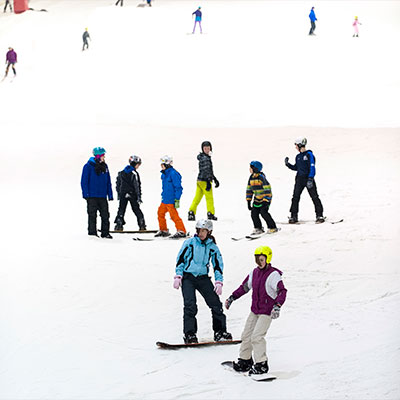
© YoungMedia 2012
As your child improves their level of fitness they may be ready to think about other more strenuous exercises.
Suggestions for increased exercise:
- Running – try joining an after school or an athletics group or find a friend who can run with them.
- Circuit training.
- Swimming or Aquarobics.
- Tennis or Badminton.
- Hill walking or Duke of Edinburgh Award Scheme.
- Football, Hockey or Basketball team.
- Martial Arts – some classes include breathing control.
- Golf.
- Gym classes.
Make sure you tell the instructor that your child has asthma and that they may need to take rests. Make sure they take inhalers and their asthma plan with them. If they are taking part in after school activities make sure they take bottled water to drink.
There may be some activities or sports which are not suitable for children with asthma, scuba diving for example. Check with your child’s asthma team if you have any doubts.
Choosing which exercise
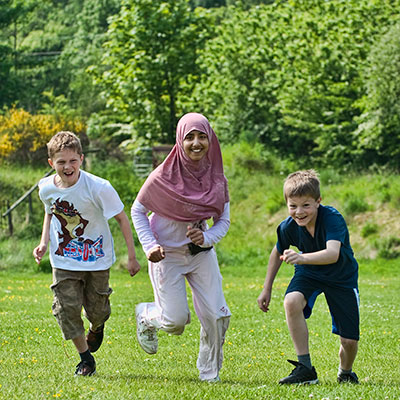
© Crown copyright 2010
Exercise need not be expensive. You and your child can walk or run for free and this is a good activity to start with if they have not exercised for some time.
Choose exercises which they can build up or down grade and which have short bursts and rest periods. In this way they can modify the exercise as they start to improve.
Do they prefer to exercise indoors or outdoors? Most children prefer to exercise with others but it does not have to be in a competitive sport if your child is concerned about this. Some children may prefer to exercise with one or two friends rather than in large groups. As they start any new exercise it can be useful to have someone to exercise with for company and motivation.
Suggestions for moderate exercise:
- Any play activity which includes movement like skipping.
- Brisk walking.
- Swimming or water based exercise and games.
- Cycling – outdoors or indoors on a static bike.
- Jogging or running games like “tag”.
- Ball games, throwing, catching and running like rounders or cricket.
- Dancing, tap, ballet, country dancing, jazz, street dance, disco, hip hop, cheer leading.
- Yoga.
- Gymnastics such as rhythmic gymnastics, movement to music.
If your child attends an organised exercise group make sure the instructor knows about their asthma and has a copy of their asthma plan. Make sure your child takes their inhalers with them. See NHS – Change 4 life for ideas on exercise.
During exercise
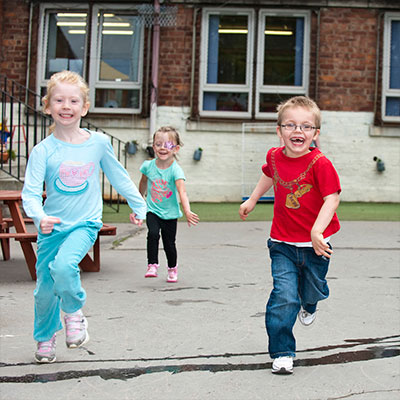
© Crown copyright 2010
It is normal for your child to:
- Breathe harder and faster but they should recover at rest.
- Their heart rate will increase.
- They will feel hot and sweaty.
- They will look flushed and pink.
They must stop if:
- They start to cough or wheeze.
- They gasp for air and don’t recover at rest.
- They say their chest feels tight.
- They cannot talk or speak to you or someone near by.
- They have chest or stomach pain.
Make sure you child knows they should not sit on their own. They should make sure someone responsible knows where they are and stays with them until they recover.
They should use their inhalers as instructed on their asthma plan and tell someone they need help. Make sure your child knows the signs of normal breathlessness during exercise and these warning signs so they understand when they should stop.
When your child is exercising
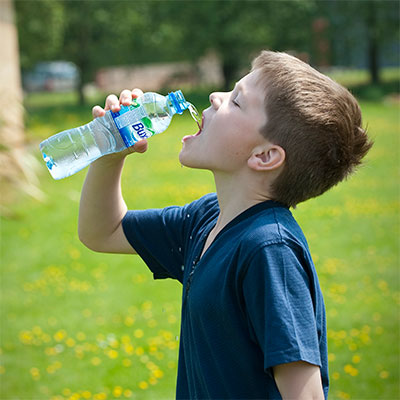
© Crown copyright
- They should wear loose , comfortable clothes. Layers are good as they can take off a layer as they start to warm up or add a layer as they cool down.
- They should wear appropriate shoes or trainers.
- You can check the pollen count and pollution levels before they exercise outdoors. You can get daily information from the Met Office – air quality and Met Office – pollen count. If pollution or pollen levels are high avoid exercise outdoors.
- Children should use warm up activity and move all joints before their main exercise. This involves stretching all the muscle groups and warming up their muscles by increasing blood flow. It is also important for children to rotate all the joints before exercise. They can do this by doing slow circular movements, both clockwise and counter-clockwise, until the joint seems to move smoothly. Stretch all muscles then a few minutes jogging on the spot or skipping.
Checks before your child starts to exercise
Inhaler
- Check with your GP or asthma nurse for any limits or precautions you should be aware of before your child starts to exercise. If their asthma is well controlled there should be no reason why they can’t exercise.
- If they have had exercise induced asthma in the past, they may be reluctant to try exercise again. Check with your GP or asthma nurse which exercises and activities would be best to start with.
- Get your child ready by making sure they take inhalers before you exercise if this has been advised by your asthma team and take their reliever inhaler with them. They should take their preventer inhaler as prescribed.
- Take extra care if they are recovering from an infection or attack.
- Don’t do exercise immediately after food or for 2 hours after a big meal.
- Get them to take a bottle of water and a mobile phone (if they are old enough) with them if they are going outdoors.
- If they are going to an exercise class, make sure they tell the instructor that they have asthma and that they may need to stop and rest. Show the instructor their asthma plan if they have one.
- Start gently and build up gradually. Children should aim for 60 minutes of exercise every day. To start with they don’t have to do this all at once.
- Plan exercise into their daily life. Try to encourage them to choose exercise which they enjoy and add some variety if you can.
Remember
Take your reliever inhaler with you.
Why exercise and sport are good for children with asthma
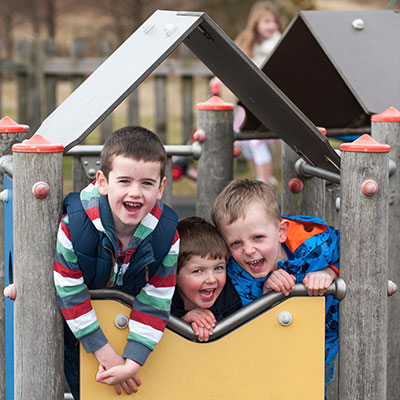
© Crown copyright 2013
Exercise is important for everyone and the good news for children with asthma is that it is good for them too.
The benefits of exercise:
- Improves lung capacity.
- Manage their symptoms better.
- Easier to manage daily tasks.
- Increase their confidence.
- Less fear of breathlessness.
- Lift their mood.
- Improve strength, posture and flexibility.
- Improve sleep and appetite.
Pneumococcal vaccine – how is it given
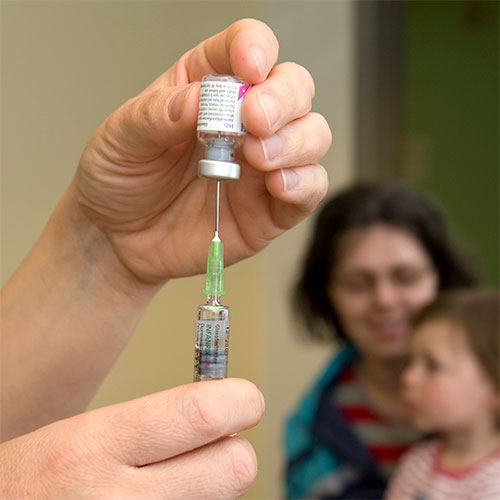
Syringe with vaccine, 2009
Most children only need one dose of pneumococcal vaccine. However if your child has certain medical conditions (kidney disease and problems with their immune system) they may need a booster every 5 years.
It is given by injection to the upper outer area of your child’s arm. It takes only seconds. It can be given at the same time as their flu vaccine.
Side effects are usually mild and only last a day or two. These include swelling, redness and pain at the injection site occasionally some children experience fever and muscle pain. Make sure the child drinks plenty of fluids and takes regular doses of children’s paracetamol (but do not exceed the recommended dose for your child).
Pneumococcal vaccine – what is it?
The pneumococcal infection is found at the back of the nose and throat of healthy adults and children. It is transferred from person to person during close contact. Coughing, sneezing, kissing and touching with unclean hands. Try to encourage your child to wash their hands regularly and especially before eating and after using the toilet. Regular hand washing is important to prevent spread of infection so you and other members of the family should also wash their hands often.
Pneumococcal disease is the term used to describe a range of illnesses such as pneumonia and septicaemia (blood poisoning).
People with asthma have been found to be at higher risk of developing complications of pneumonia. Research shows that the pneumococcal vaccine gives protection to children with asthma. Ask your GP about the pneumococcal vaccine.





